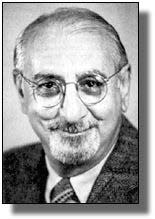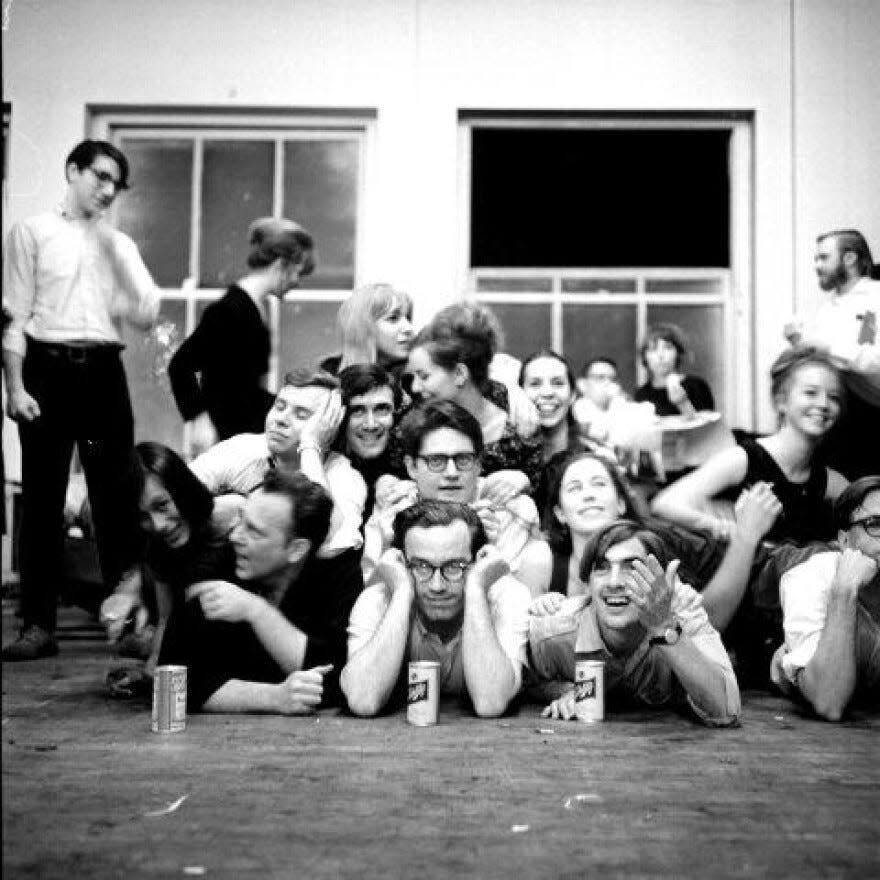Composer George Cacioppo of Monroe became key figure in avante-garde music
George Cacioppo was born on Sept. 24, 1926, in Monroe and became one of the most prolific post-World War II avant-garde musical composers – achieving international recognition as one of the co-founders of the ONCE group and the ONCE Festival, which was held in Ann Arbor from 1961 to 1968. The ONCE Festival, according to the Northwestern University Archives, was the single most significant focus for avant-garde, mixed-media activity in the Midwest during the 1960s. The ONCE Festival included jazz and rock performances of works from an entire range of Cageian and post-Cageian experimental American music.

Cageian music was named after its leading promoter, John Cage, who is credited with pioneering electroacoustic music (the first use of musical technology, including synthesizers, reverb, and other enhancements) and indeterminacy in music (the random playing of notes – often considered the basis of modern jazz and other freeform musical genres).
According to the University of Michigan’s Bentley Historical Library, Cacioppo studied with Ross Lee Finney at U-M and obtained his B.A. in music in 1951 and M.A. in music in 1952. Subsequently, he worked at the Tanglewood Institute at Boston University’s School of Music, studying under a Koussevitsky grant (established and named for Serge Koussevitsky, the Russian immigrant who conducted the Boston Symphony Orchestra from 1924 to 1949) with Leon Kirchner in 1959.
In 1961, Cacioppo co-founded along with Robert Ashley, Gordon Mumma, Roger Reynolds and Donald Scavarda the ONCE group and was an active organizer of and participant in all of the ONCE Festivals. Held in various Ann Arbor venues, including the Unitarian Church (now the Stone Chalet Bed and Breakfast Inn and Event Center at 1917 Washtenaw Ave.) and the roof of Ann Arbor’s Thompson Street Parking Garage, the ONCE group produced annual concerts of premieres by both established and avant-garde composers including jazz legend Eric Dolphy. The festivals established Ann Arbor as an international center of avant-garde music in the ’60s.

Cacioppo’s role as both studio engineer at Ann Arbor radio station WUOM and part-time University of Michigan School of Music faculty member meant that every ONCE Festival concert was recorded – archived now at the Bentley. In 1962, Cacioppo introduced his landmark composition, “Cassiopeia.” Named after the astrological constellation, the score indulged his interest in astronomy and is described by fellow ONCE group and festival founder Mumma in the TEK Percussion Database as an “…an immediate classic, partly because of its mysterious but practical map-like score.”
As described by Mark Clague of the UMS (the University Musical Society, founded in 1880), dozens of guest appearances took ONCE artists to Detroit, New York, San Diego, Los Angeles, Paris, Rome, Tokyo and beyond to perform under spinoff names including ONCE Friends, ONCE a Month, ONCE Removed, the Collaborative Studio for Electronic Music, the Truck Ensemble, New Music for Pianos and the Sonic Arts Group (later Union).
Mumma also shared details about Cacioppo’s professional life and his struggle with depression and medical complications related to Crohn’s disease. In spite of these challenges, Cacioppo, as described by Mumma, possessed incredible musical talent: “His use of instruments (and voice) is sublime. Each individual instrument plays with indigenous sense, as though he performed it himself. The diverse ensembles of his compositions are translucent and clear-sounding even within relatively complex sound-textures. With the "limits" of sonority inherent in his solo piano pieces - sounds articulated mostly from the keyboard – Cacioppo mysteriously extends the resulting sound-spectrum without exaggerated physical foolishness.”
It was Cacioppo’s decision to donate his archives to the Bentley shortly before his April 8, 1984, death.
Tom Adamich is president of Visiting Librarian Service, a firm he has operated since 1993. He also is project archivist for the Greening Nursery Co. and Family Archives and the electric vehicle awareness coordinator at Monroe County Community College.
This article originally appeared on The Monroe News: Composer George Cacioppo of Monroe was key figure in avante-garde music

